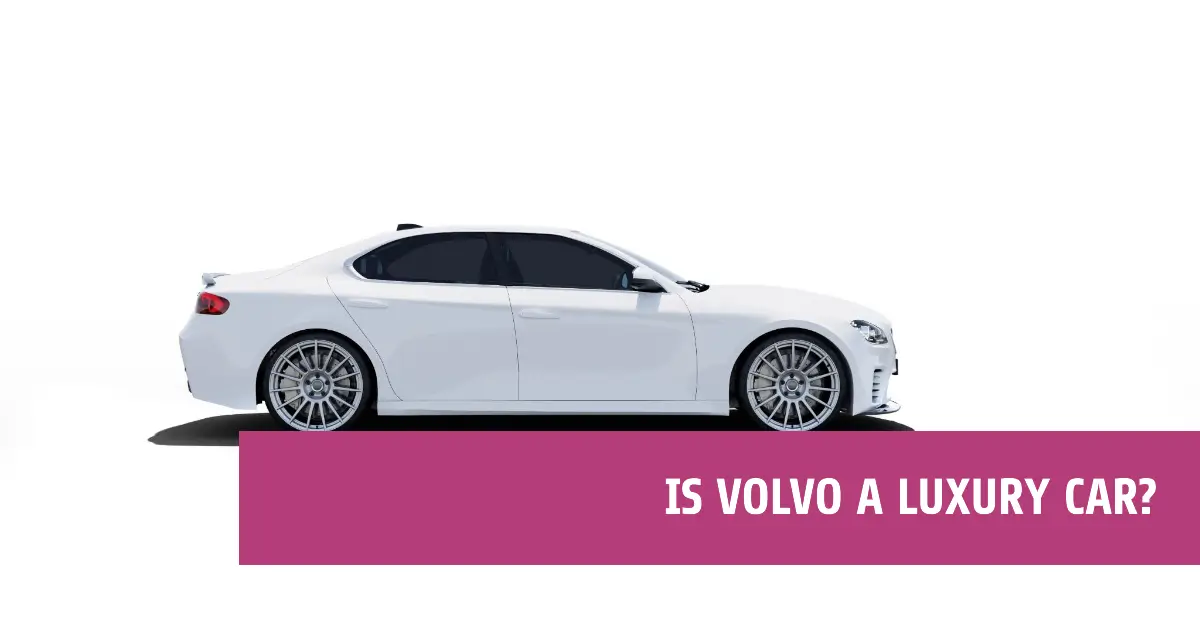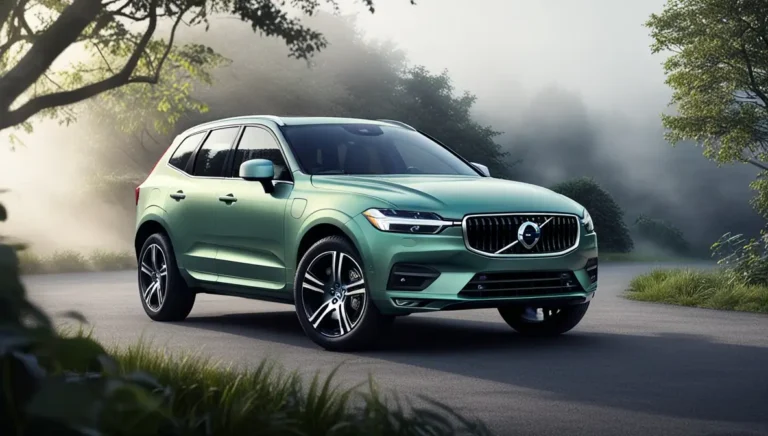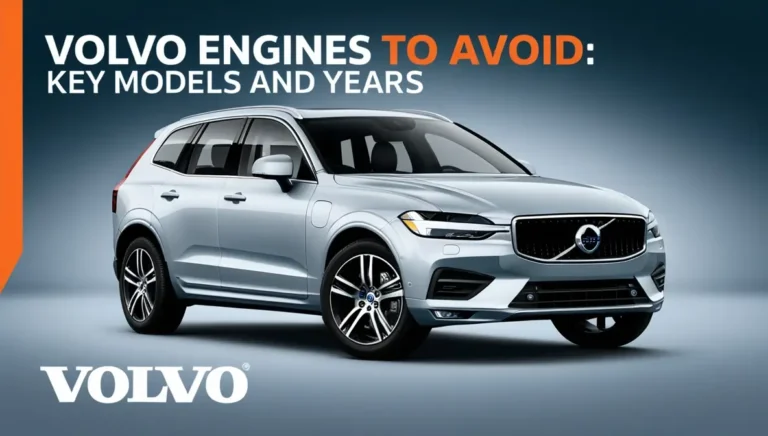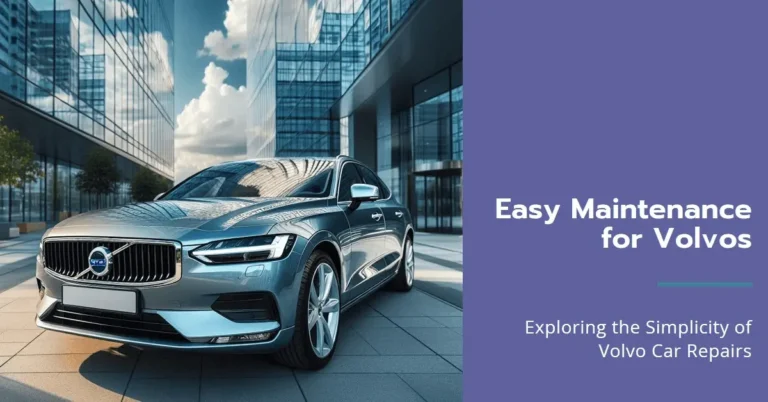Is Volvo a Luxury Car?
When you think of luxury cars, brands like Mercedes-Benz, BMW, and Audi might immediately come to mind. But what about Volvo? Is Volvo a luxury car brand? This question has sparked debates among car enthusiasts and potential buyers alike. In this comprehensive guide, we’ll dive deep into the world of Volvo and explore its position in the luxury car market.
Volvo, the Swedish automaker known for its commitment to safety and Scandinavian design, has been making waves in the automotive industry. But does it truly belong in the same category as traditional luxury brands? To answer this question, we must examine what defines a luxury car, how Volvo meets these standards, and how it compares to its high-end competitors.
What Defines a Luxury Car?
Before determining if Volvo is a luxury car brand, we must understand what makes a car “luxury.” Several key factors contribute to a vehicle’s luxury status:
Performance & Engineering
Luxury cars are expected to deliver exceptional performance and engineering. This includes:
- Smooth, powerful engines
- Responsive handling
- Advanced transmission systems
- Superior ride quality
Luxury vehicles often boast cutting-edge technology under the hood, providing a driving experience that goes beyond mere transportation.
Interior Comfort and Materials
The interior of a luxury car should exude opulence and comfort. This typically involves:
- High-quality leather upholstery
- Real wood or metal trim
- Plush carpeting
- Ergonomic seat design
- Advanced climate control systems
Luxury car interiors are designed to wrap passengers in comfort, using premium materials that appeal to the senses of touch and sight.
Brand Reputation and Exclusivity
A significant aspect of luxury cars is the status and exclusivity associated with the brand. Luxury automakers often have:
- A long history of producing high-end vehicles
- A reputation for innovation and excellence
- Limited production numbers for certain models
- A loyal customer base who values the brand’s prestige
The brand’s image is crucial in positioning a car as a luxury item.
Price Range
While not the sole determining factor, price is certainly an indicator of luxury status. Typically, luxury vehicles start at around $40,000 and can easily exceed $100,000 for high-end models. The premium price reflects the quality of materials, advanced technology, and the brand’s prestige.
Customer Experience and Service
Luxury car ownership extends beyond the vehicle itself. Luxury brands often provide:
- White-glove customer service
- Exclusive dealership experiences
- Comprehensive warranty packages
- Concierge services for maintenance and repairs
This level of service adds to the overall luxury experience and justifies the higher price point.
Now that we’ve established what defines a luxury car let’s examine Volvo’s position in this competitive market.
Volvo’s Position in the Luxury Car Market
Volvo has been steadily climbing the ranks in the luxury car segment, carving out a unique niche for itself. Here’s how Volvo positions itself in the luxury market:
Scandinavian Minimalism Meets Luxury
Volvo’s approach to luxury is distinctly Scandinavian. The brand embraces:
- Clean, minimalist designs
- Functional yet elegant interiors
- A focus on natural light and space
- High-quality materials used thoughtfully
This design philosophy sets Volvo apart from its more ornate German and Japanese counterparts, appealing to those who appreciate understated elegance.
Comparison to Rivals
Volvo’s market position is unique when compared to traditional luxury brands:
- Focus on safety: While all luxury brands prioritize safety, Volvo has made it their core identity.
- Sustainability emphasis: Volvo leads the charge in sustainable luxury, appealing to eco-conscious buyers.
- Value proposition: Volvo often offers more features at a lower price than some competitors.
According to CJ&CO, Volvo competes with established luxury brands by offering a different kind of premium experience that prioritizes practicality and social responsibility alongside luxury.
Understated Luxury
Volvo’s marketing strategy, as noted by CJ&CO, focuses on “real people” rather than projecting an image of unattainable luxury. This approach:
- Appeals to consumers who want luxury without ostentation
- Aligns with changing perceptions of luxury, where experiences and values matter more than flashy logos
- Positions Volvo as a thoughtful choice for discerning buyers
This strategy has helped Volvo attract customers who might be turned off by the sometimes pretentious image of traditional luxury brands.
Key Features That Align Volvo with Luxury Vehicles
Volvo’s claim to luxury status is supported by several key features that are on par with or even surpass those of established luxury brands:
Advanced Safety Systems
Volvo’s commitment to safety is legendary, and its advanced safety features are a luxury in themselves:
- City Safety: A comprehensive system that can detect pedestrians, cyclists, and other vehicles, automatically applying brakes if necessary.
- Blind Spot Information System (BLIS): Alerts drivers to vehicles in their blind spots, enhancing safety during lane changes.
- Pilot Assist: A semi-autonomous driving system that helps with steering, acceleration, and braking on well-marked roads.
According to The Driver Adviser, these safety innovations protect occupants and provide peace of mind, a true luxury in today’s fast-paced world.
Premium Interiors and Comfort
Volvo’s interiors are a testament to the brand’s luxury aspirations:
High-End Materials
- Real wood inlays: Carefully selected and crafted to add warmth and texture to the interior.
- Premium leather: Soft, supple, and often sourced from sustainable suppliers.
- Ambient lighting: Thoughtfully designed to create a serene atmosphere.
Carzwerk notes that Volvo’s use of materials rivals that of top-tier luxury brands, with a focus on creating a calming, premium environment.
Cabin Design Philosophy
Volvo’s interior design is guided by principles that enhance the luxury experience:
- Spaciousness: Clever design maximizes interior space, creating an airy feel.
- Minimalism: Clean lines and uncluttered layouts reduce visual stress.
- Ergonomics: Controls and displays are intuitively placed for ease of use.
Technology Features
Volvo integrates advanced technology seamlessly into its vehicles:
- Sensus infotainment system: A large, tablet-style touchscreen that controls most vehicle functions.
- Premium sound systems: Many models feature high-end audio from Bowers & Wilkins or Harman Kardon.
- Head-up display: Projects essential information onto the windshield, keeping the driver’s eyes on the road.
Sustainability Initiatives in Volvo Vehicles
Volvo’s commitment to sustainability is increasingly becoming a luxury feature in itself:
Electrification Plans
Kelley Blue Book reports that Volvo aims to be fully electric by 2030, a bold move that positions the brand at the forefront of sustainable luxury. This includes:
- Introducing more all-electric models
- Phasing out internal combustion engines
- Investing in charging infrastructure
Use of Sustainable Materials
Volvo’s approach to luxury includes a focus on eco-friendly materials:
- Recycled plastics in interior components
- Responsibly sourced wood trims
- Nordic: A new interior material made from recycled PET bottles, bio-attributed material from sustainable forests, and recycled cork vinyl
Carbon Neutrality
Volvo has committed to becoming carbon neutral by 2040, demonstrating a long-term commitment to sustainability that appeals to environmentally conscious luxury buyers.
Volvo Models Considered Luxury Vehicles
While Volvo’s entire lineup has premium aspirations, some models stand out as true luxury contenders:
Volvo XC90
The XC90 is Volvo’s flagship SUV and a strong competitor in the luxury market:
- Starting price: Around $49,000, competitive with other luxury mid-size SUVs
- Three-row design: Spacious and versatile for families or those who need extra cargo space
- Advanced technology: Features like the Sensus system and available air suspension
- Powertrain options: Including a plug-in hybrid for eco-conscious luxury buyers
The XC90 competes directly with models like the BMW X5 and Mercedes-Benz GLE, often offering more features at a lower price point.
Volvo S90
The S90 is Volvo’s luxury sedan offering:
- Emphasis on comfort: Exceptionally smooth ride and supportive seats
- Spacious interior: More rear legroom than many competitors
- Advanced infotainment: Large touchscreen and available premium audio systems
- Elegant design: Sleek exterior with distinctive Thor’s Hammer LED headlights
Carzwerk notes that the S90 provides a compelling alternative to mid-tier luxury sedans like the BMW 5-Series, offering a unique blend of comfort and Scandinavian design.
Volvo XC40 Recharge
The XC40 Recharge represents Volvo’s entry into the electric luxury SUV market:
- All-electric powertrain: Over 200 miles of range on a single charge
- Quick acceleration: 0-60 mph in under 5 seconds
- Luxurious interior: Premium materials and advanced tech features
- Compact size: Easy to maneuver in urban environments while maintaining a luxury feel
Kelley Blue Book positions the XC40 Recharge as a strong contender in the growing compact electric luxury SUV segment, competing with models like the Tesla Model Y and Audi e-tron.
How Volvo Compares to Other Luxury Car Brands
To truly understand Volvo’s place in the luxury market, it’s essential to compare it directly with established luxury brands:
Volvo vs. Mercedes-Benz
- Brand image: Mercedes-Benz is known for luxury and status, while Volvo emphasizes safety and understated luxury.
- Design philosophy: Mercedes often features more ornate designs, whereas Volvo embraces minimalism.
- Technology focus: Both brands are innovative, but Volvo strongly emphasizes safety tech.
- Sustainability: Volvo is more aggressive in its electrification and sustainability goals.
Carzwerk notes that while Mercedes-Benz may have a stronger traditional luxury image, Volvo appeals to buyers looking for a more practical and socially responsible luxury.
Volvo vs. BMW
- Driving dynamics: BMW is known for sporty handling, while Volvo prioritizes comfort and smoothness.
- Interior design: Volvo’s interiors are often praised for their clean, uncluttered design compared to BMW’s more driver-focused cockpits.
- Brand perception: BMW is seen as a performance-luxury brand, whereas Volvo is considered a safety-first premium brand.
- Eco-friendliness: Volvo’s commitment to sustainability and electrification is generally more robust than BMW’s.
According to CJ&CO, Volvo attracts buyers who want a luxury experience without the aggressive styling or performance focus of brands like BMW.
Are All Volvos Luxury Cars?
While Volvo is increasingly recognized as a luxury brand, it’s important to note that not all Volvo models fit squarely into the luxury category:
- Entry-level models: Base trims like the XC40 or V60 may lack some luxury features in higher trims.
- Price range: Some Volvo models have starting prices below the typical luxury car threshold.
- Trim levels: Higher trims like Inscription or Recharge offer more luxury features and materials.
It’s fair to say that while all Volvos offer a premium experience, the luxury designation is most applicable to higher-end models and trims.
Customer Perception of Volvo as a Luxury Brand
Customer perception plays a crucial role in defining a brand’s luxury status:
- Brand loyalty: Volvo enjoys strong customer loyalty, with many buyers returning for subsequent purchases.
- Niche appeal: CJ&CO reports that Volvo attracts buyers who value safety, sustainability, and subtle luxury over flashy status symbols.
- Changing luxury definitions: As consumer values shift towards sustainability and social responsibility, Volvo’s brand image aligns well with modern luxury ideals.
Reviews and customer feedback often praise Volvo for offering a luxury experience that feels more grounded and purposeful than some traditional luxury brands.
Volvo’s Commitment to Future Luxury
Volvo’s plans further cement its position in the luxury market:
Electric Vehicle Transition
Volvo’s commitment to go fully electric by 2030 is a bold move that positions the brand as a leader in sustainable luxury:
- New electric models: Plans to release several new all-electric vehicles in the coming years.
- Battery technology: Investments in improving range and charging speeds.
- Charging infrastructure: Partnerships to ensure convenient charging for Volvo owners.
Autonomous Driving Innovations
Volvo continues to invest heavily in autonomous driving technology:
- Advanced driver assistance systems: Continuous improvements to existing safety features.
- Lidar technology: Integration of lidar sensors for more accurate environmental detection.
- Ethical AI: Focus on developing responsible, autonomous systems that prioritize safety.
Sustainability as Luxury
Volvo is redefining luxury to include sustainability as a core component:
- Circular economy: Efforts to increase the use of recycled materials in vehicle production.
- Carbon-neutral manufacturing: Plans to make production facilities carbon-neutral.
- Ethical sourcing: Commitment to responsible supply chain practices.
Final Verdict: Is Volvo Truly a Luxury Car Brand?
After examining all aspects of Volvo’s offerings, brand positioning, and plans, we can conclude that Volvo has earned its place among luxury car brands. However, Volvo’s approach to luxury is distinct from traditional luxury automakers:
- Safety as a luxury: Volvo’s advanced safety features are unparalleled and provide a sense of security that is truly luxurious.
- Understated elegance: The brand offers a more subtle luxury that appeals to those who prefer refinement over ostentation.
- Sustainability focus: Volvo’s commitment to environmental responsibility is increasingly considered a luxury attribute.
- Value proposition: Many Volvo models offer luxury features at a more accessible price than some competitors.
Sources like CJ&CO and Carzwerk agree that Volvo appeals to a specific type of luxury buyer seeking a mindful, understated form of luxury. These buyers value the brand’s focus on safety, comfort, and sustainability over flashy designs or status symbols.
Volvo’s transition to all-electric vehicles by 2030 further solidifies its position in the luxury market, aligning with changing consumer values and positioning the brand at the forefront of automotive innovation.
In conclusion, while Volvo may not fit the traditional mold of luxury car brands, it has successfully carved out its niche in the premium automotive market. Volvo offers a unique blend of Scandinavian design, cutting-edge safety technology, and a strong commitment to sustainability – all hallmarks of modern luxury. As the definition of luxury continues to evolve, Volvo is well-positioned to meet the changing demands of discerning car buyers who seek a more conscientious and refined driving experience.







